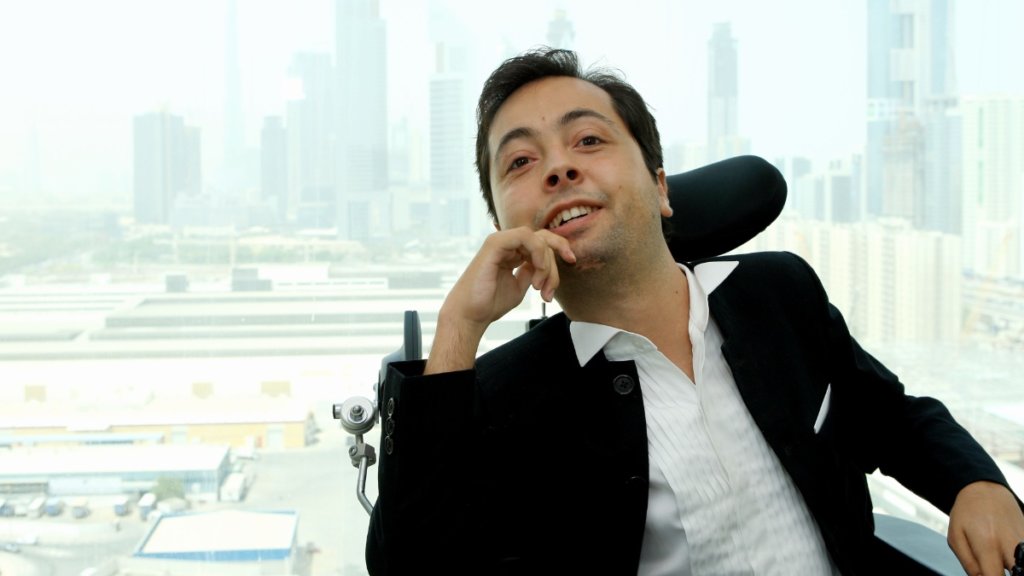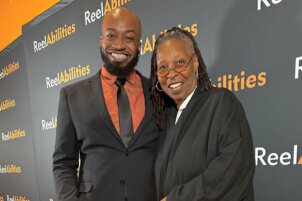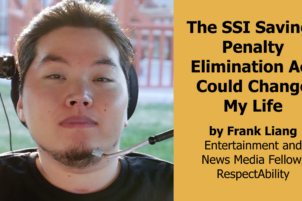 Rockville, Maryland, Sept. 23 – For more than 20 years, Dr. Victor Santiago Pineda has spearheaded initiatives to advance the principles of access and inclusion in the US and abroad. Pineda moved to the United States from Venezuela when he was seven years old because he was denied a right to an education. As a wheelchair-user, he grew up in Orange County and was 12 years old when the ADA was signed into law. By the time he graduated high-school, he realized that he had benefited from rights in the United States that were missing in many parts fo the world. He was driven to understand why some parts of the world advanced while others were left behind. He completed a dual degree in Political Economy and Business Administration. He continued on to a master’s in City and Regional Planning from UC Berkeley’s prestigious College of Environmental Design. His mentor, Judith Heumann, encouraged him to continue his studies and training, and completed a Ph. D. in Urban Planning from the University of California, Los Angeles.
Rockville, Maryland, Sept. 23 – For more than 20 years, Dr. Victor Santiago Pineda has spearheaded initiatives to advance the principles of access and inclusion in the US and abroad. Pineda moved to the United States from Venezuela when he was seven years old because he was denied a right to an education. As a wheelchair-user, he grew up in Orange County and was 12 years old when the ADA was signed into law. By the time he graduated high-school, he realized that he had benefited from rights in the United States that were missing in many parts fo the world. He was driven to understand why some parts of the world advanced while others were left behind. He completed a dual degree in Political Economy and Business Administration. He continued on to a master’s in City and Regional Planning from UC Berkeley’s prestigious College of Environmental Design. His mentor, Judith Heumann, encouraged him to continue his studies and training, and completed a Ph. D. in Urban Planning from the University of California, Los Angeles.
Now he directs his own foundation Pineda Foundation / World Enabled and serves on the Architectural and Transportation Barriers Compliance Board. He founded and Co-Chairs the Cities for All Initiative and the Global Network for Disability Inclusive and Accessible Urban Development. However, what he enjoys most is teaching what he has learned through 20 years as a practitioner working at the intersection of policy, planning and design. He is also a highly sought after teacher, and since 2011 he has taught a popular course called “Building the Inclusive City” at his alma mater, UC Berkley.
His scholarship advances the theory and practice of inclusive development through urban policy, planning and design.
Pineda serves on RespectAbility’s Board of Advisors and speaks on his experience as an immigrant, and has mentored Latinx youth with disabilities. He is committed to brining light to his experiences as a step-father of a child with a disability, and his work to support undocumented Latinx youth who are facing deportation. His commitment to intersectionality and success for a range of communities is broad and deep. He’s worked with English-as-Second Language (ESL) Learners, Latinx youth with disabilities who face deportation proceedings, educating leaders on inclusive philanthropy, and other topics.
“One of the most important things for us to think about is that really accessibility is about making people experience whatever event, whatever gathering, whatever knowledge, whatever you’re trying to create [so that] people experience that without any barriers,” he said during a 2019 RespectAbility webinar on “How to Ensure Accessible Events.”
“That doesn’t mean that you have to do any major, dramatic changes. It just means that you have to be thinking along the process of planning, engaging, and ensuring that people with disabilities, whether they have difficulty seeing, hearing, remembering, will be able to participate equally in the event.”
Pineda also shared some of his own experiences trying to attend inaccessible events and how this has impacted the mission of his work.
Pineda’s work and impact has been prolific. During his time at graduate school, Pineda became the youngest government delegate to participate in the drafting of the United Nations Convention on the Rights of Persons with Disabilities. Of the experience, he shared, “My engagement with the UN Convention on the Rights of Persons with Disabilities (CRPD) fundamentally altered the way I thought about human rights, justice, and inclusion. I saw that the struggle for recognition, more specifically for inclusion, taking place in similar ways, simultaneously all over the world.”
He has received numerous grants and awards, including a National Science Foundation (NSF) Innovation research grant, Jefferson Award and the AAPD Paul G. Hearne Leadership Award. In 2015, he was appointed by former President Obama to the United States Access Board. This federal agency provides guidance and leadership for ADA compliant designs.
He also directed important research projects as the UC Berkley Chancellor’s Postdoctoral Fellow, Fulbright-Hays Fellow, and Senior Research Fellow at the World Institute on Disability, which led to the publication of his book, “Building the Inclusive City” published by Palgrave. He stated that of his research: “I believe that whether you’re a student, a researcher, a community advocate, or a policymaker, you will need to cultivate collaborative relationships and critical analysis skills that are built on a fundamental and comprehensive understanding of equity and inclusion.”
Just 39.4 Percent of Working-Age Hispanic and Latinx People with Disabilities Are Employed
As the country observes National Hispanic Heritage Month, which began September 15, 2020 and ends October 15, 2020, it is important to note that there are 5.2 million Hispanic and Latinx people with disabilities living in the U.S.
The Disability Statistics Compendium, released by the Institute on Disability at the University of New Hampshire, shows that in the economic expansion before the COVID-19 pandemic, just 39.4 percent of working-age Latinx people with disabilities had jobs, compared to 76 percent of Latinx people without disabilities. In total, out of 2,915,754 working-age Latinx people with disabilities, only 1,149,092 had jobs pre-pandemic.
Pineda’s work on accessibility and inclusion has the power to change these statistics.







